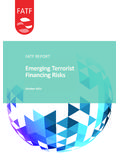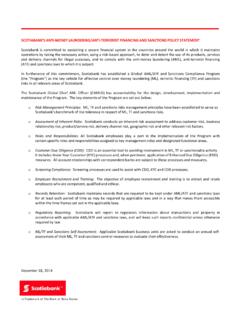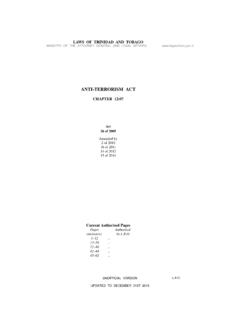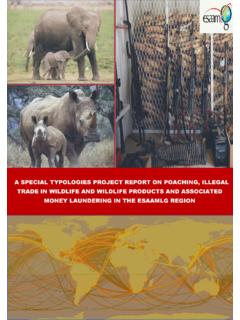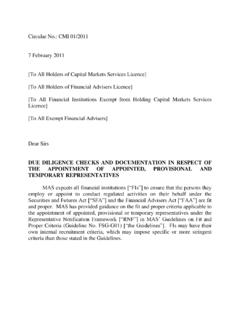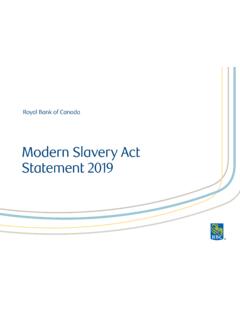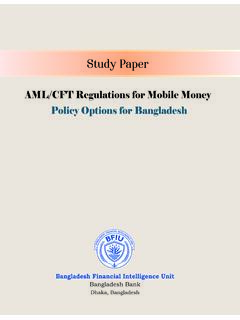Transcription of THE GENEVA ACCORDS ON AFGHANISTAN (3) - badloon.net
1 THE GENEVA ACCORDS ON AFGHANISTAN Introduction by Dr Farouq AZAM July 1993 The GENEVA accord , signed on 14 April 1988 between AFGHANISTAN and Pakistan, with the USA and the USSR serving as guarantors, facilitated the withdrawal of the Red Army from AFGHANISTAN . The accord contained provisions for the timetable of the withdrawal of Soviet troops from AFGHANISTAN . It officially began on 15 May 1988 and ended by 15 February 1989, thus putting an end to a nine-year-long Soviet occupation of AFGHANISTAN . The Afghan Mujahideen were neither party to the negotiations nor to the GENEVA accord and, consequently, refused to accept the terms of the agreement.
2 Afghan Mujahideen were not present in the process, though occasionally and poorly informed by Pakistan. Pakistan actually acted as solicitor for Afghan resistance. As a result, the war continued after the completion of the Soviet withdrawal. The Soviet-backed regime of Najibullah, though failing to win popular support, territory, or international recognition, was able to remain in power until 1992, when it collapsed and was overrun by the Mujahideen. Since the beginning of the Soviets invasion of AFGHANISTAN , the US pressed the USSR, through diplomatic means to retreat from AFGHANISTAN .
3 The Soviets, on the other hand tried hard to show it was not an occupying force and would leave AFGHANISTAN once its security concerns were removed. The Democratic Republic of AFGHANISTAN and the USSR had claimed that Soviet forces had entered AFGHANISTAN in order to protect the Afghan regime from foreign forces intervening Pakistan supported Mujahideen. The logic of the GENEVA ACCORDS was based on this accusation, that once the foreign threat to AFGHANISTAN was removed, the forces of DRA s friend, the Soviet Union, would leave. For that reason a bilateral agreement between Pakistan, which was actively supporting the resistance, and the DRA prohibiting intervention and interference between them was essential.
4 With green lights from the US and USSR, the UN had initiated negotiations in 1982 to facilitate a Soviet withdrawal from AFGHANISTAN . Here, Pakistan and Afghan governments negotiated with the mediation of the UN Secretary General's Special Representatives, Javier P rez de Cu llar and followed by Diego Cordovez. The talks were indirect as Pakistan did not recognize the Democratic Republic of AFGHANISTAN . The format of negotiation had essentially been agreed upon by 1985 in which the United States and the Soviet Union had committed themselves to guaranteeing the implementation of an agreement leading to a withdrawal.
5 Both the format and the substance of the agreement were designed to be acceptable to the Soviet Union and the DRA. By the beginning of 1987, the controlling fact in the Afghan war was the Soviet Union's determination to withdraw. It would not renege on its commitment to the Kabul government's survival--Gorbachev's options were restricted by Soviet military insistence that Kabul not be abandoned. Nevertheless, the Soviet leadership was convinced that resolution of cold war issues with the West and internal reform were far more urgent than the fate of the Kabul government.
6 On the other hand, Pakistan, with controlling position, side-lined the Mujahideen and acted as their representative in all stages of negotiation. Its clauses included affirmation of the sovereignty of AFGHANISTAN and its right to self-determination, its right to be free from foreign intervention or interference, and the right of its refugees to a secure and honourable return. The bilateral agreement between the AFGHANISTAN and Pakistan on the principles of non-interference and non-intervention was signed on April 14, 1988 that authorized the withdrawal of "foreign troops" according to a timetable that would remove all Soviet forces by February 15, 1989.
7 The ACCORDS thus facilitated a withdrawal by an erstwhile superpower, in a manner which justified an invasion. They exemplify the delicacy of UN diplomacy when the interests of a great power are engaged. In essence, the ACCORDS were a political bailout for a government struggling with the consequences of a costly error. The UN could not insist that accusations of national culpability were relevant to the negotiations. In the case of AFGHANISTAN , the Soviet Union insisted on its own diplomatic terms as did the United States in a different manner concerning Vietnam.
8 The accord consisted of several instruments: 1. Agreement on the interrelationships for the settlement of the situation relating to AFGHANISTAN signed by AFGHANISTAN and Pakistan, witnessed by the USA and the USSR; 2. Bilateral agreement between the Islamic Republic of Pakistan and the Democratic Republic of AFGHANISTAN on the principles of mutual relations, in particular on non-interference and non-intervention; 3. Declaration on international guarantees, signed by the USSR and the USA; 4. Bilateral agreement between Pakistan and AFGHANISTAN on the voluntary return of Afghan refugees.
9 THE GENEVA ACCORDS OF 1988 ( AFGHANISTAN ) ANNEX I AGREEMENTS ON THE SETTLEMENT OF THE SITUATION RELATING TO AFGHANISTAN BILATERAL AGREEMENT BETWEEN THE REPUBLIC OF AFGHANISTAN AND THE ISLAMIC REPUBLIC OF PAKISTAN ON THE PRINCIPLES OF MUTUAL RELATIONS, IN PARTICULAR ON NON-INTERFERENCE AND NON-INTERVENTION The Republic of AFGHANISTAN and the Islamic Republic of Pakistan, hereinafter referred to as the High Contracting Parties, Desiring to normalize relations and promote good-neighborliness and co-operation as well as to strengthen international peace and security in the region.
10 Considering that full observance of the principle of non-interference and non-intervention in the internal and external affairs of States is of the greatest importance for the maintenance of international peace and security and for the fulfillment of the proposes and principles of the Charter of the United Nations, Reaffirming the inalienable right of States freely to determine their own political, economic, cultural and social systems in accordance with the will of their peoples, without outside intervention, interference, subversion, coercion or threat in any form whatsoever. Mindful of the provisions of the Charter of the United Nations as well as the resolutions adopted by the United Nations on the principle of non-interference and non-intervention, in particular the Declaration on Principles of International Law concerning Friendly Relations and Co-operation among States in accordance with the Charter of the United Nations,s of 24 October 1970, as well as the Declaration on the Inadmissibility of Intervention and Interference in the Internal Affairs of States, of 9 December 1981, Have agreed as follows.
